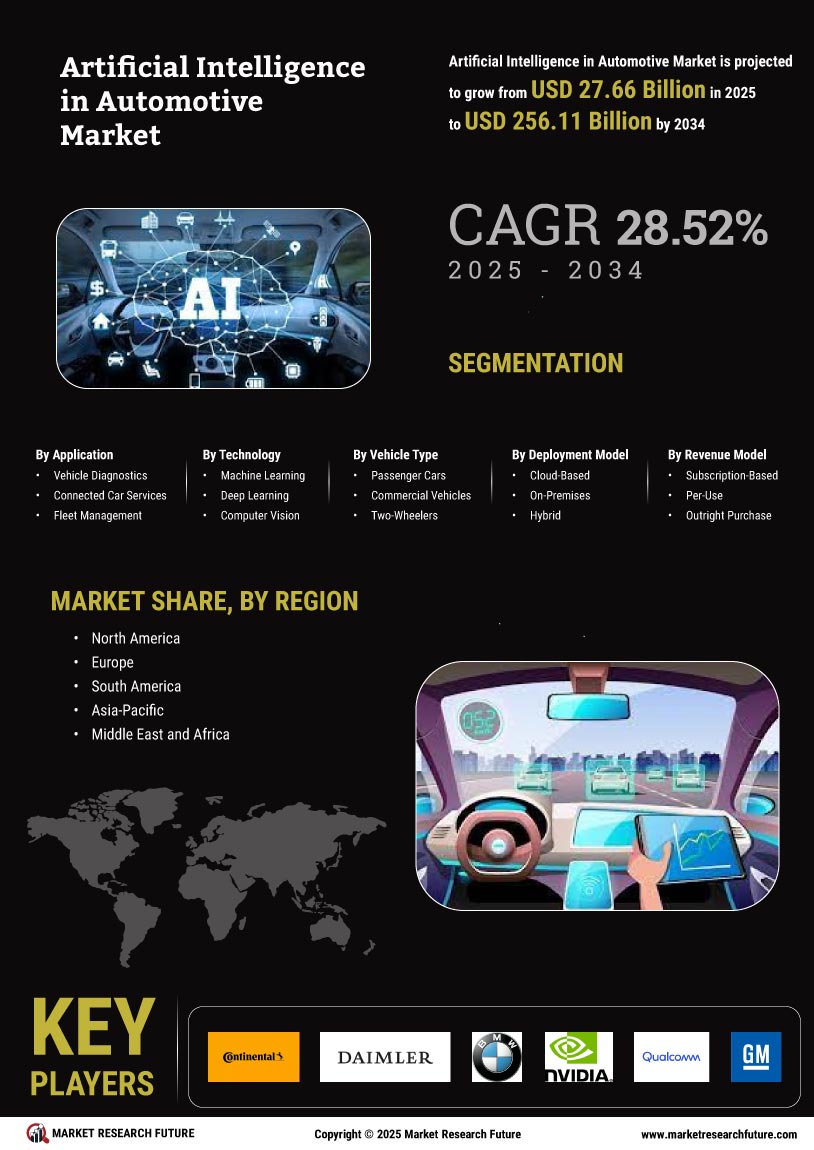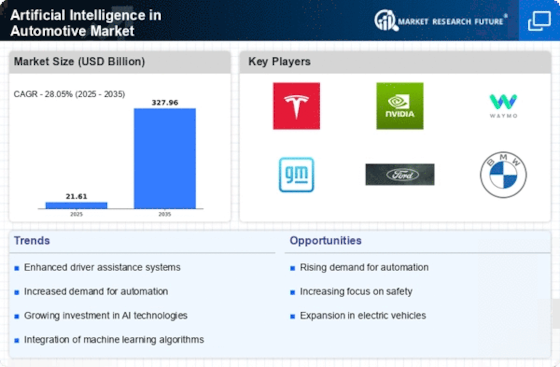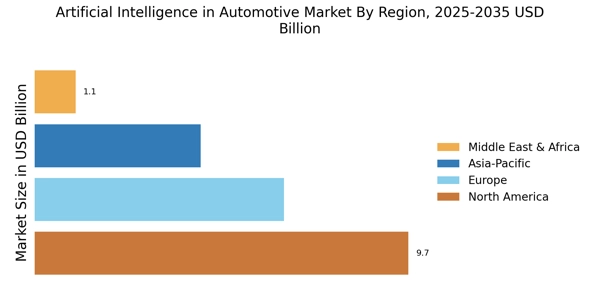Enhanced User Experience
The demand for personalized user experiences is a key driver in the Artificial Intelligence in Automotive Market. AI technologies are being employed to create tailored in-car experiences, from voice-activated controls to adaptive infotainment systems. These innovations not only improve user satisfaction but also foster brand loyalty. Data suggests that vehicles equipped with AI-driven personalization features see a 25% increase in customer retention rates. As consumers increasingly seek connected and intuitive driving experiences, the role of AI in enhancing user interaction with vehicles is expected to grow, shaping the future of automotive design and functionality.
Enhanced Safety Protocols
The integration of Artificial Intelligence in Automotive Market is driving the development of advanced safety protocols. AI technologies, such as machine learning and computer vision, are being utilized to enhance vehicle safety features. For instance, AI systems can analyze real-time data from various sensors to detect potential hazards, thereby reducing the likelihood of accidents. According to recent data, the implementation of AI-driven safety features has led to a 30% reduction in collision rates in vehicles equipped with these technologies. This trend is likely to continue as manufacturers prioritize safety, making AI a crucial component in the automotive sector.
Sustainability Initiatives
Sustainability is becoming a focal point in the Artificial Intelligence in Automotive Market, with AI technologies being leveraged to promote eco-friendly practices. Automakers are utilizing AI to optimize fuel efficiency and reduce emissions through smarter engine management systems. Additionally, AI can assist in the design of electric vehicles, enhancing battery performance and longevity. The market for electric vehicles is anticipated to grow substantially, with projections indicating that by 2027, electric vehicles could account for 30% of total vehicle sales. This shift towards sustainability is likely to be driven by AI innovations that support greener automotive solutions.
Data-Driven Decision Making
The utilization of data analytics powered by Artificial Intelligence in Automotive Market is transforming decision-making processes within the automotive sector. Manufacturers are increasingly relying on AI to analyze consumer behavior, market trends, and operational efficiencies. This data-driven approach enables companies to optimize production, enhance customer satisfaction, and reduce costs. For example, AI algorithms can predict maintenance needs based on historical data, potentially saving manufacturers millions in repair costs. As the automotive industry continues to embrace data analytics, the role of AI in shaping strategic decisions is expected to expand significantly.
Autonomous Vehicle Development
The push towards autonomous vehicles is a significant driver in the Artificial Intelligence in Automotive Market. Companies are investing heavily in AI technologies to develop self-driving capabilities. These advancements are not only aimed at improving convenience but also at enhancing road safety. Reports indicate that the autonomous vehicle market is projected to reach a valuation of over 500 billion by 2030, with AI playing a pivotal role in this growth. The ability of AI to process vast amounts of data in real-time allows for better decision-making on the road, which is essential for the successful deployment of autonomous vehicles.

















